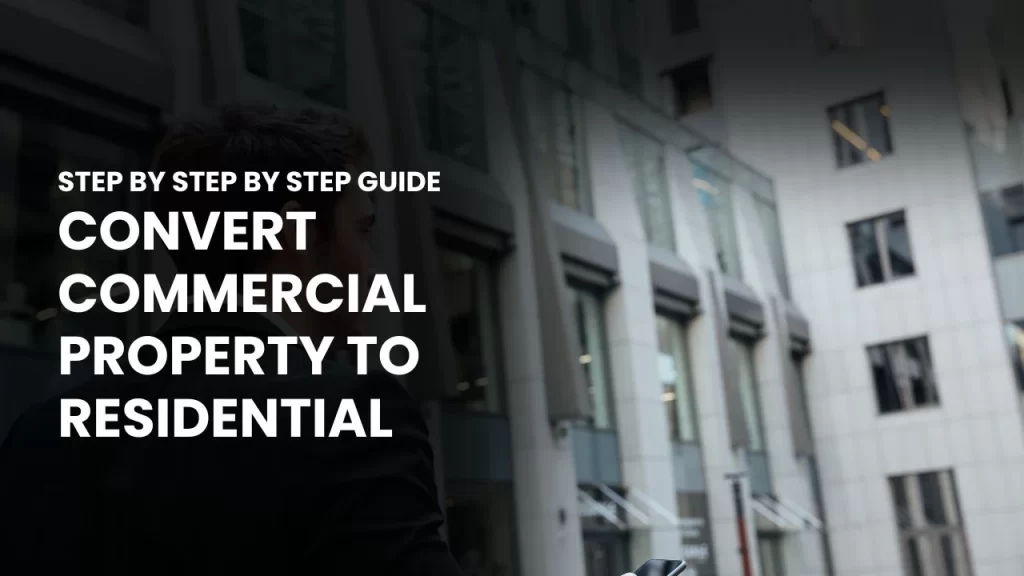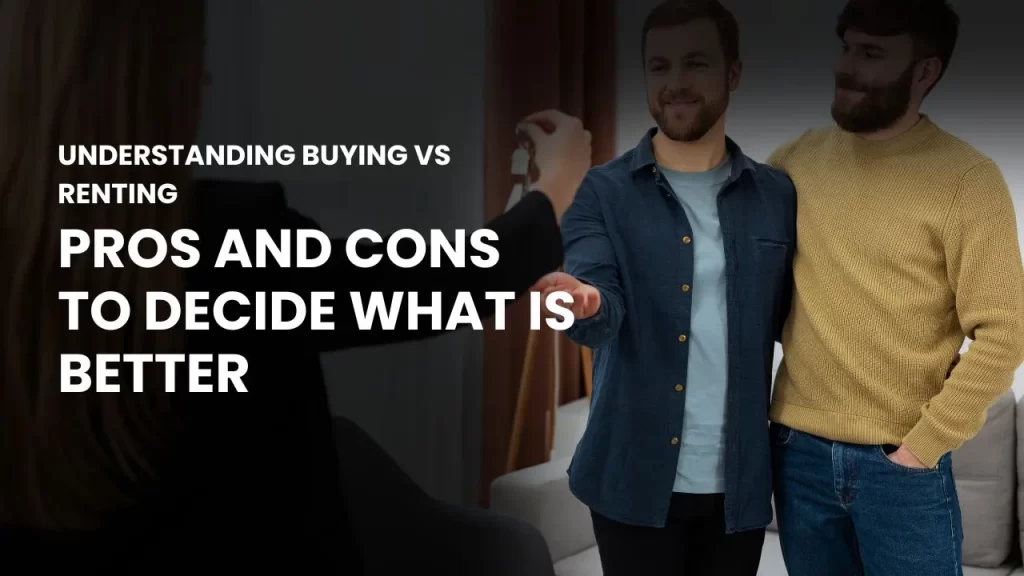Methods To Resolve Landlord Tenant Disputes And The Role Of Mediation
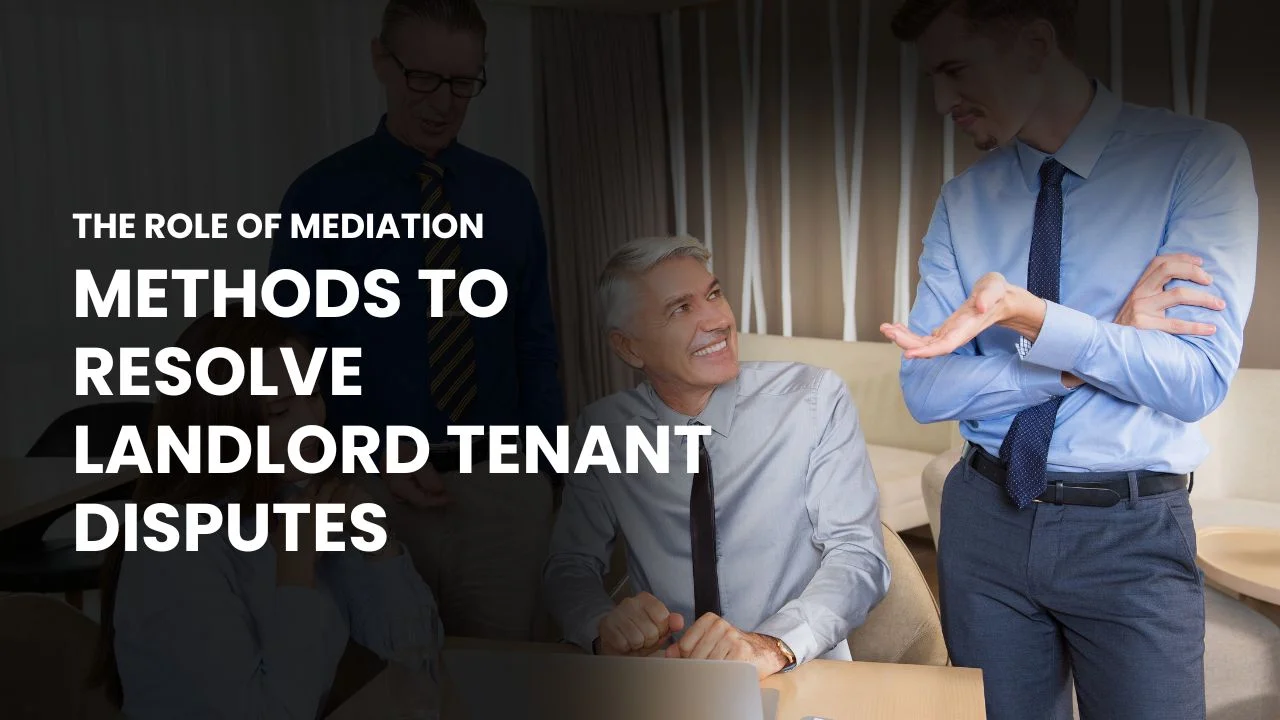
The rental relationship between landlords and tenants is not really simple. Sometimes, a misunderstanding or failure to communicate properly leads to a conflict. If these issues are not resolved at the right time, parties may face serious financial complications. Therefore, Estate Agent Ilford discusses some causes of landlord-tenant disputes to provide long-term profit to every individual in the real estate industry and to achieve a better understanding.
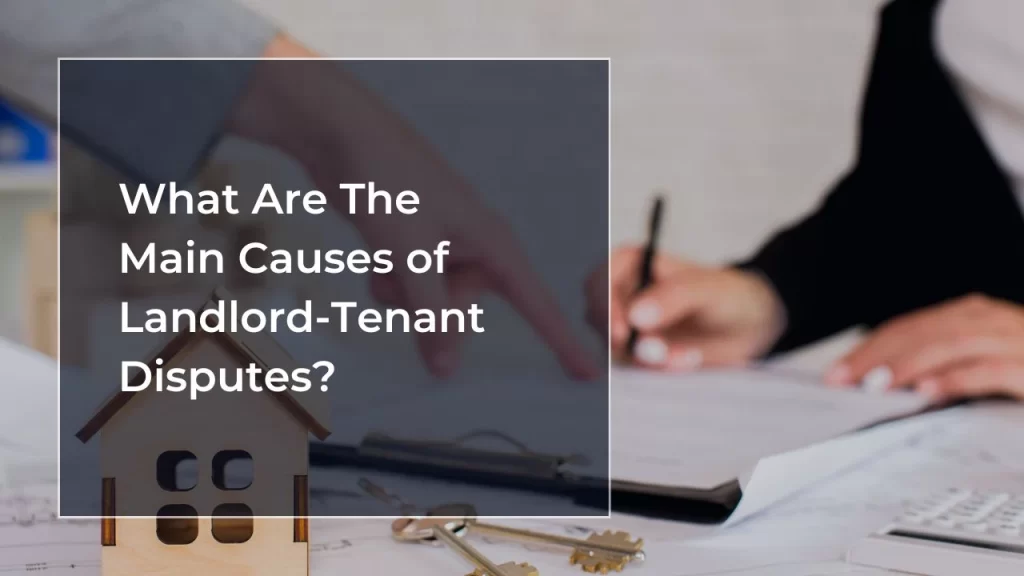
What Are The Main Causes of Landlord-Tenant Disputes?
Conflicts between property owners and residents often arise from misunderstandings, contract violations, unsatisfactory property maintenance, and unreasonable rent increases. Both parties must have a complete understanding of their legal rights and responsibilities to prevent and settle these issues efficiently. However, understanding the troubles that might occur in many cases is crucial:
- To protect your investments or peace of mind
- To maintain a positive lease experience
- To resolve issues quickly and professionally.
Common Issues and How To Resolve Them
Resolving common rental and selling homes challenges helps to navigate tenancy disputes and the renting process with clarity, transparency, and statutory protection. These are some common disputes that may arise between landlords and tenants:
- Rent Payment Issues: Sometimes, residents do not pay their rent on time, even though the due amount or date is clearly mentioned in the legal agreement. There could be many reasons behind this, which can affect the landlord’s financial condition if not discussed properly.
How to resolve: Landlords have the legal right to evict tenants who do not comply with the rules and regulations. But eviction is not the right solution; communication and open discussion can resolve this issue more easily. They may be facing many economic problems and pay once their financial stability is restored.
- Security Deposit Issues: Actually, tenants pay a security deposit to landlords before moving in, which can be deducted if they cause any damage to the property. Deductions can only be made for breach of tenancy terms, unpaid rent or bills, and any damage incurred. But the remaining amount must be returned within 30 days after the end of the tenancy.
How to resolve: To avoid these types of disputes, landlords should provide an inventory checklist that clearly outlines the condition and details of the rental home. On the other hand, tenants should also follow this checklist and meet standard requirements. Keep the property free from hazards before inspections to avoid deduction issues.
- Rental Property Damage Issues: Property damage can be caused by tenants intentionally or negligently, or by general wear and tear. Disagreement occurs on who should compensate for the impairment.
How to resolve: Landlord and tenants should differentiate between true damage and general wear and tear. If the issue is minor, try to resolve it yourself and cut the charges from the deposit. But if the tenants cause major damage and violate the lease agreement, property owners request compensation and cleaning services.
- Repair and Maintenance Conflicts: Landlords are responsible for maintenance and necessary repairs, such as broken walls, a leaking roof, kitchen appliances, or electrical defects. Tenants, along with landlords, are responsible for keeping the rental property free from safety or health hazards. Failure to carry out these responsibilities results in damage due to delayed repair and maintenance.
How to resolve: Disputes arise over who is responsible for fixing damage or paying for repairs. Therefore, the lease agreement should outline who is accountable for minor or major maintenance issues in a property.
- Privacy and Access Disputes: Tenants have a legal right to live in a rental property without any disturbance issues because this is now their home. In most cases, property access and illegal entry by landlords is considered a common reason for conflict with tenants.
How to resolve: Property owners should ask permission or give a proper 24-hour notice before entering the property. In case of emergencies, such as flood, fire, or gas leakage, they have immediate access permission by UK law and don’t require notice.
- Nuisance Issues: In most cases, other residents file nuisance complaints on the tenant’s activities, such as noise, unpleasant odors, fires, or hazardous acts. Landlords should analyze the situation to confirm the validity before taking any action.
How to resolve: In this situation, the managing agents should address the tenant that these issues are against the law and could result in legal consequences. Additionally, they should emphasize the importance of maintaining a peaceful living environment in the rental market, particularly in London or other areas of the UK.
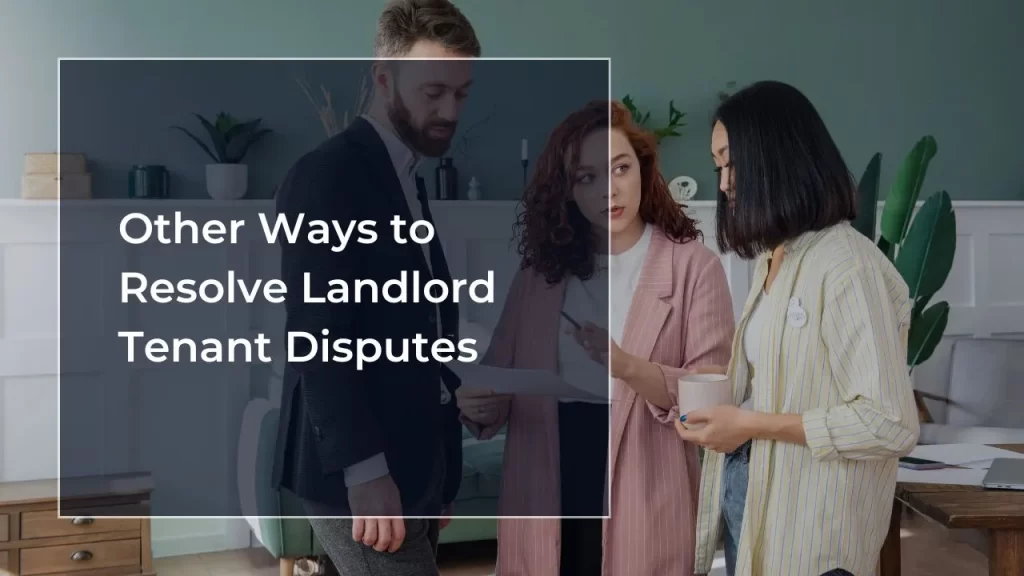
Other Ways to Resolve Landlord-Tenant Disputes
There are various other methods to settle a dispute before it escalates, such as:
- Informal Negotiation or Direct Communication: The first step in resolving a conflict is to maintain clear communication with the other party to discuss concerns and thoughts. With the help of this approach, parties can avoid legal costs and understand their legal rights.
- Review the Tenancy Agreement: A tenancy agreement serves as a legally binding contract between the parties. They should review this document, as it outlines the rights and responsibilities of both parties and clarifies legal obligations.
- Document Records: Landlords should maintain a written record of every action, including inspection reports, photographs, and any other evidence related to the tenancy. When the verbal discussion doesn’t solve the issue, this document serves as evidence during a legal investigation.
- Write a Formal Letter: Inform tenants about dates, details, and evidence in a well-written letter. The letter ensures clarity and highlights specific issues an individual is going through.
- Seek Legal Advice: If every method fails and the matter goes to court, consult a solicitor for guidance and professional advice on legal procedures.
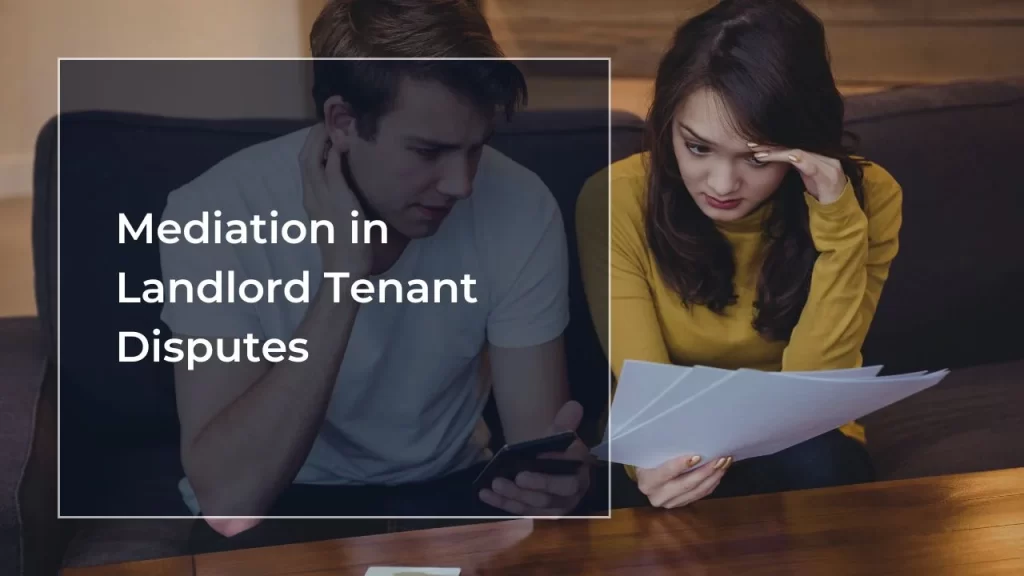
Mediation in Landlord-Tenant Disputes
If direct communication with tenants or other methods fails, mediation helps to reach an agreement without bias. This method is considered far more cost-effective and less stressful than the court system. Additionally, this method promotes open discussion and helps to save a rental relationship without any judicial involvement. This table highlights every aspect of mediation that settles a problem without going to court.
| Aspect | Summary |
| What It Is | Mediation involves a neutral third party helping landlords and tenants reach a mutually acceptable agreement. |
| Difference from Arbitration | Mediation is a non-binding and cooperative process, while arbitration results in a binding decision similar to a court ruling. |
| When to Use It | When direct negotiation fails, but both parties are willing to communicate and avoid court proceedings. |
| Where to Find Services | Local councils, community mediation centers, housing offices, or organizations like the American Arbitration Association. |
| How It Works | Both sides discuss their issues with a mediator’s guidance; if needed, the mediator meets privately with each party (caucusing) to reach a compromise. |
| Outcome | No one is forced into an agreement; both sides must voluntarily agree for the solution to be binding. |
Final Thoughts:
Landlord-tenant disputes often arise due to various reasons, but clear communication and discussion can help to resolve them early. Negotiation, mediation, proper documentation, and seeking legal advice can prevent these issues from escalating. For expert advice or legal assistance, contact our team, Estate Agent Ilford.
FAQs on Landlord-Tenant Disputes
The 3C’s of conflict resolution are Collaboration, Compromise, and Communication. Collaboration refers to parties working together and understanding their rights and responsibilities towards each other. Compromise means one must give up their thoughts to reach a resolution or agreement. Communication involves the landlord and tenants resolving a conflict by discussing and respecting each other.
These are some steps that every landlord in a housing market can follow to avoid a dispute:
Keep a written record of everything
Maintain communication regularly
Try to resolve the issue promptly before it escalates
Stay calm and discuss details
Provide a legal notice
Mediation involves a third party or organization that helps both parties communicate and reach a mutual agreement, whereas arbitration involves a neutral third person who listens to both sides and makes a binding decision similar to a judge.
The timeframe depends on the method the property owner or tenants use:
1 to 2 days if they are solving the issue by negotiation
The mediation method usually takes 1 to 2 weeks
Court action can take several months if the matter is complex.
These rental conflicts are first handled through informal negotiation or mediation. If the communication fails, the issue goes to solicitors, courts, or organizations.
No, pet-friendly rental homes do not allow animals to cause property damage. If they do so, the landlords can charge tenants for compensation. They can also deduct the fees from the security deposit if tenants refuse to compensate.
To avoid these types of disputes, tenants should review the tenancy agreement and negotiate with landlords before signing. Landlords should write an easy-to-read and professional agreement to avoid contract breaches and conflicts.
Parking issues are less likely to happen in most cases. If the property does not have a parking area, write clearly in the agreement to avoid future disputes.



